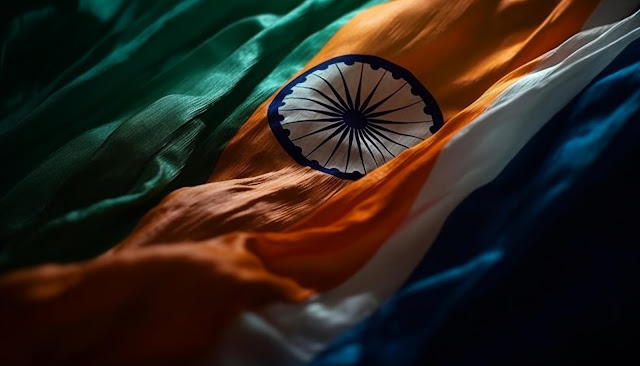Republic Day, observed on January 26th each year, holds a profound significance in the history of India. This day commemorates the adoption of the Constitution of India, a document that not only delineates the framework of governance but also embodies the dreams, aspirations, and principles of a nation. As the tricolor flag unfurls, and the echoes of the national anthem resonate, Republic Day becomes a poignant reminder of India's resilience, diversity, and the ongoing journey toward progress.
I. Historical Context:
Republic Day marks the culmination of India's transition to a sovereign, democratic, and republic nation. On January 26, 1950, the Constitution of India came into effect, replacing the Government of India Act (1935) as the governing document. Dr. B.R. Ambedkar, the principal architect of the Constitution, played a pivotal role in shaping this visionary document that aimed to secure justice, liberty, equality, and fraternity for every citizen.
II. Symbolism of the Tricolor:
The Indian flag, a tricolor of saffron, white, and green, with the Ashoka Chakra in navy blue at the center, holds deep symbolism. Saffron signifies courage and sacrifice, white represents truth and peace, green stands for faith, fertility, and valor, while the Ashoka Chakra embodies the law of dharma (righteousness).
III. The Grand Parade:
Republic Day celebrations in India are marked by the grandeur of the Republic Day Parade held in the capital, New Delhi. The parade showcases the country's military might, cultural diversity, and technological achievements. The ceremonial event not only honors the nation's armed forces but also provides a platform for states to display their cultural heritage through vibrant tableaux.
IV. Reflection on Freedom Struggle:
Republic Day is not just a ceremonial event; it is a time for reflection on the sacrifices made during the struggle for independence. It pays homage to the countless freedom fighters who laid down their lives to ensure a sovereign and democratic future for the nation.
V. Cultural Showcase:
The diversity of India is magnificently portrayed during the Republic Day Parade. Various states present their unique cultural heritage through dance, music, and traditional attire. This cultural showcase serves as a testament to India's unity in diversity, showcasing the richness of traditions that coexist harmoniously.
VI. Educational Significance:
Republic Day is an opportune moment for educational institutions to emphasize the importance of democratic values and civic duties. Schools and colleges often organize events, debates, and discussions to instill a sense of pride, responsibility, and awareness among the younger generation.
VII. Social Impact:
Beyond the ceremonial aspects, Republic Day also serves as a platform for addressing contemporary social issues. Civil society, activists, and organizations use this occasion to raise awareness about pressing matters, fostering a sense of social responsibility among citizens.
VIII. Constitutional Values:
The Constitution of India stands as a beacon of democratic ideals. It guarantees fundamental rights and freedoms to every citizen, irrespective of caste, creed, or gender. Republic Day, therefore, is an opportune time to reaffirm the commitment to upholding these constitutional values.
IX. Challenges and Aspirations:
As India commemorates another Republic Day, it is crucial to acknowledge the challenges that persist. Issues such as poverty, inequality, and environmental concerns demand collective efforts and innovative solutions. Republic Day serves as a reminder that the journey toward progress is ongoing, requiring the active participation of every citizen.
X. Global Perspective:
The celebration of Republic Day extends beyond India's borders, with the Indian diaspora worldwide participating in events that honor the nation's democratic ethos. Embassies and consulates organize cultural programs, reinforcing the global impact of India's commitment to democracy.
Conclusion:
Republic Day is not merely a day of festivities; it is a moment of introspection, gratitude, and commitment. It symbolizes the triumph of democracy, the resilience of a nation, and the collective vision of a diverse people bound together by shared values. As the tricolor waves proudly in the wind, Republic Day becomes a celebration of India's past achievements, a reflection on its present challenges, and a commitment to a future defined by unity, justice, and progress.






0 Comments